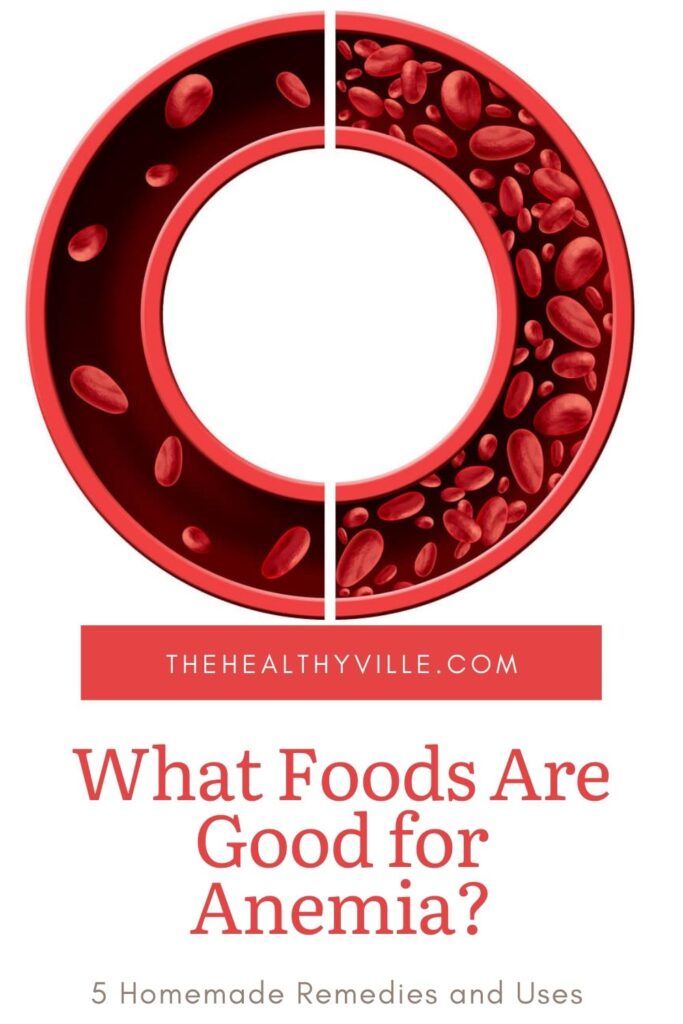What foods are good for anemia? Can you treat this condition using homemade ingredients? Yes, you can! Learn what to combine!
There are some natural remedies that help increase iron absorption to deal with iron deficiency anemia. In this opportunity, we collect 5 good options that you can do at home.
Iron deficiency anemia is a disorder that develops when hemoglobin levels in the blood are lowered due to an iron deficiency. As a result of this, oxygen cannot be optimally transported to tissues and cells, which triggers several outbreaks in the body. Do you know how to treat iron deficiency anemia naturally?
What foods are good for anemia?
Treatment for this type of anemia is often based on changes in diet and administration of iron tablets. However, there are other remedies of natural origin whose properties help to promote its relief. We share some options with you in the following space.
Iron deficiency anemia can occur due to a decreased ability to absorb iron through diet or from a low intake of this nutrient. It can also be the result of internal bleeding or excessive bleeding during menstruation, among others.
Many people are unaware that they have this type of anemia, since its primary symptoms are mild or are mistaken for other conditions. However, sometimes the disease presents with prolonged fatigue, pale skin, shortness of breath, weakness of the hair and nails, and other more obvious clinical manifestations.
Severe cases of the disease should receive medical attention as it can lead to other complications. However, if it is given moderately or mildly, it can be improved with dietary changes and some natural solutions. Discover below what foods are good for anemia and 5 remedies to treat iron deficiency with them.
-
Spinach
In addition to being rich in iron, spinach contains vitamin C, which is essential for the correct absorption of this mineral.
One of the best supplements to treat iron deficiency anemia is nothing more and nothing less than spinach leaves. This prodigious vegetable can provide up to 3.6 mg of iron per 100 grams. In addition, it is an important source of vitamin C, a key nutrient for the proper absorption of this mineral.
How to use them?
Spinach can be added to many culinary preparations. However, it is recommended to consume it raw, either in smoothies or salads.
-
Red beets
For many years, red beets have served as the basis for remedies against anemia. Every 100 grams of the vegetable contains up to 1.80 mg of iron. In addition, it provides vitamin C and folates that also give it anti-anemic properties.
How to use it?
To start, chop a red beet into several pieces.
Then, process it in the blender with a carrot and half a glass of orange juice.
Consume the juice in the middle of the morning for 2 weeks in a row.
-
Rooibos tea
In addition to the minerals in rooibos, this infusion lacks a stimulant such as caffeine.
Rooibos tea or South African red tea is a natural drink that has become popular throughout the world for its multiple medicinal properties. It can be useful to treat iron deficiency anemia, since it makes a slight contribution of iron and vitamin C.
How to use?
Prepare the infusion and consume it twice a day.
Note: this tea has some estrogenic activity in the body, therefore, it could interfere with certain treatments.
-
Mugwort infusion
There are no studies confirming the benefits of mugwort in the treatment of iron deficiency anemia. Despite this, its consumption can be beneficial, since it provides significant amounts of vitamin C, a nutrient that intervenes in the assimilation of iron.
How to use it?
First, add a tablespoon of dried mugwort to a cup of boiling water.
Next, cover the drink and let it rest for 10 minutes.
Finally, filter it with a strainer and consume it after the main meals.
-
Tomato
The tomato has antioxidant compounds such as lycopene, which can provide interesting benefits on general health.
Tomato is one of the fresh vegetables that helps to obtain iron in case of anemia. Its antioxidant compounds are very beneficial for disorders that affect blood health, since they minimize the negative impact of free radicals and toxins.
How to use?
Consume cold tomato through salads or cold soups. If you prefer, prepare a tomato juice with parsley and lemon and drink it mid-morning.
Repeat its consumption until you feel an improvement in symptoms.
Do you have iron deficiency anemia? Follow the treatment recommended by the doctor and try the remedies mentioned as a complement. Keep in mind that you should not use it to replace the supplements prescribed by the professional. You should even ask them in advance if they do not interfere with their effects.
Don’t forget to SHARE what foods are good for anemia with your friends and family on your social networks!

